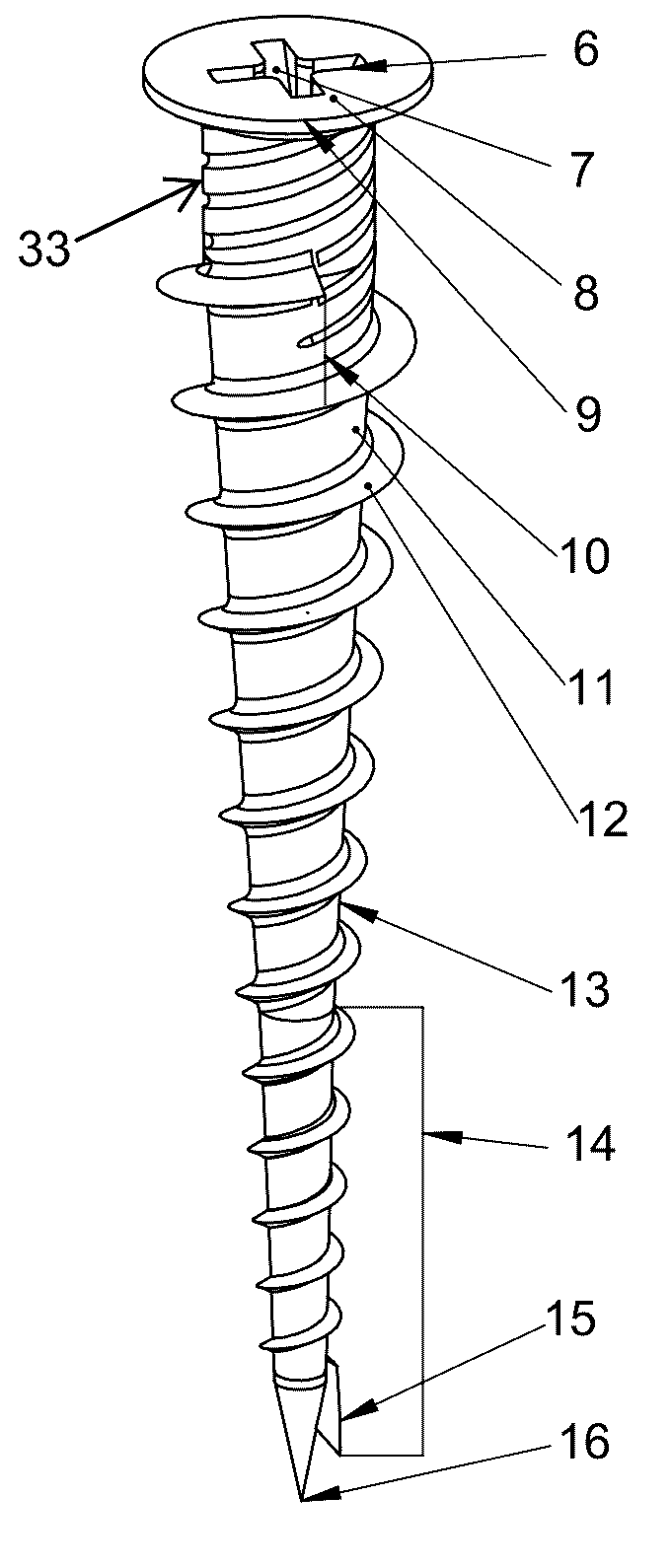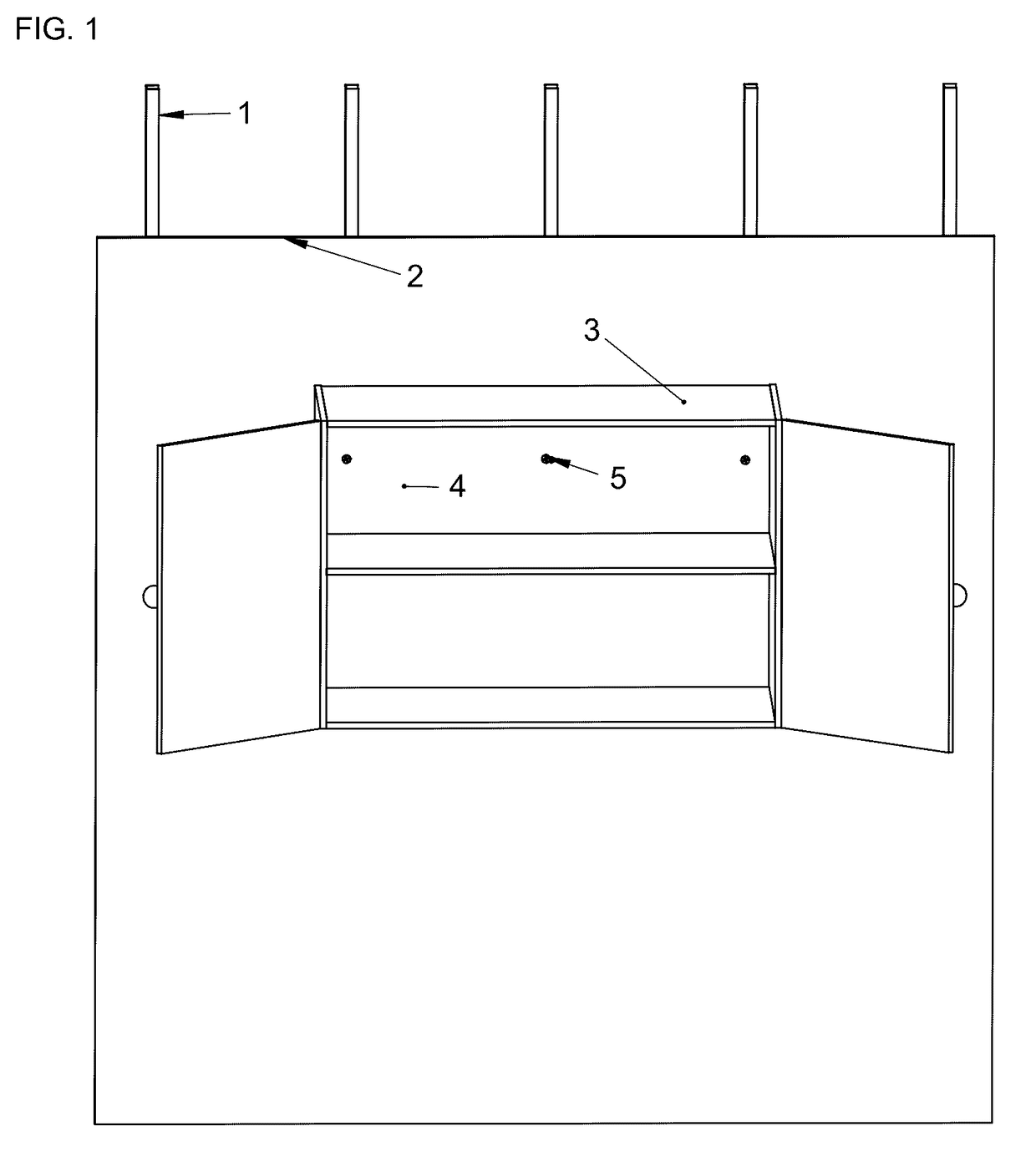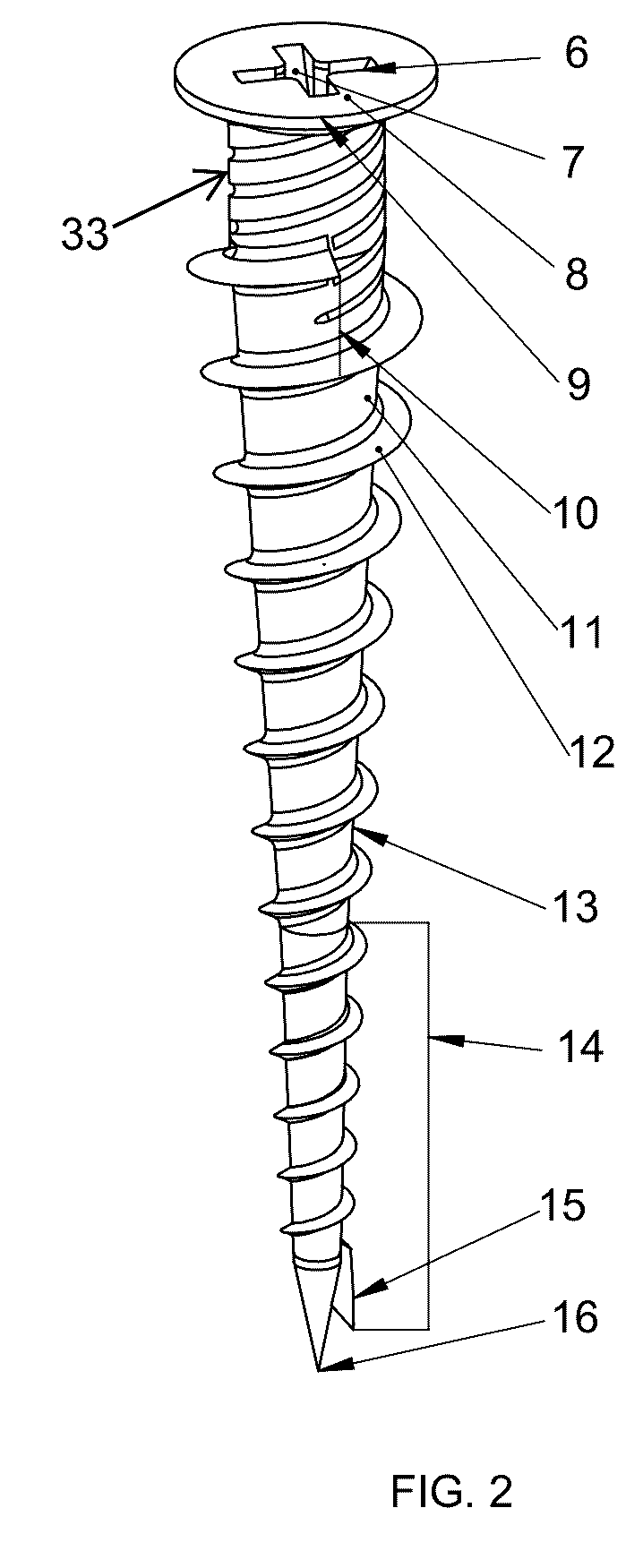Steel stud anchor
a technology of steel studs and anchors, which is applied in the direction of screws, threaded fasteners, bolts, etc., can solve the problems of drywall anchors, steel stud construction is not without its problems, and is extremely difficult and time-consuming to fasten most things to walls, etc., and achieves the effect of easy removal and movemen
- Summary
- Abstract
- Description
- Claims
- Application Information
AI Technical Summary
Benefits of technology
Problems solved by technology
Method used
Image
Examples
Embodiment Construction
[0043]FIG. 1 shows a perspective isometric view of millwork 3 fastened to a steel stud wall, showing steel studs 1 vertically arranged in a generally regular spacing, and supporting wall cladding 2. Steel stud anchors 5 penetrate the back board 4 of the millwork 3, the rear plane of said backboard being contiguous with the generally vertical plane of the wall cladding 2. In this fashion, the millwork may bear a specific load, exemplified by a kitchen cabinet full of dishes. Other possible types of millwork include bookshelves, television mounts, audio equipment, artwork, mirrors, lighting, drapery, decorative millwork panels, handrails, conduit mounts and duct hangers. The load variable is a function of the wall material. The steel studs generally used in buildings for the erection of interior partitions can vary in thickness from about 0.0179″ (18 mils) or 0.455 mm (25 gauge) to about 0.0296″ (30 mils) or 0.752 mm (20 gauge) With thicker steel studs, the metal is heavier, sturdier ...
PUM
 Login to View More
Login to View More Abstract
Description
Claims
Application Information
 Login to View More
Login to View More - R&D
- Intellectual Property
- Life Sciences
- Materials
- Tech Scout
- Unparalleled Data Quality
- Higher Quality Content
- 60% Fewer Hallucinations
Browse by: Latest US Patents, China's latest patents, Technical Efficacy Thesaurus, Application Domain, Technology Topic, Popular Technical Reports.
© 2025 PatSnap. All rights reserved.Legal|Privacy policy|Modern Slavery Act Transparency Statement|Sitemap|About US| Contact US: help@patsnap.com



